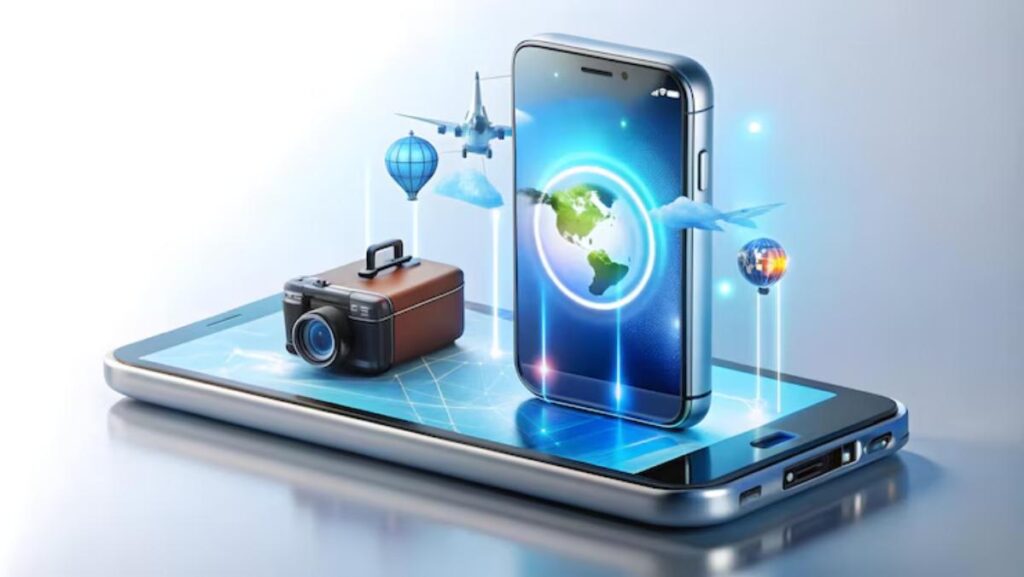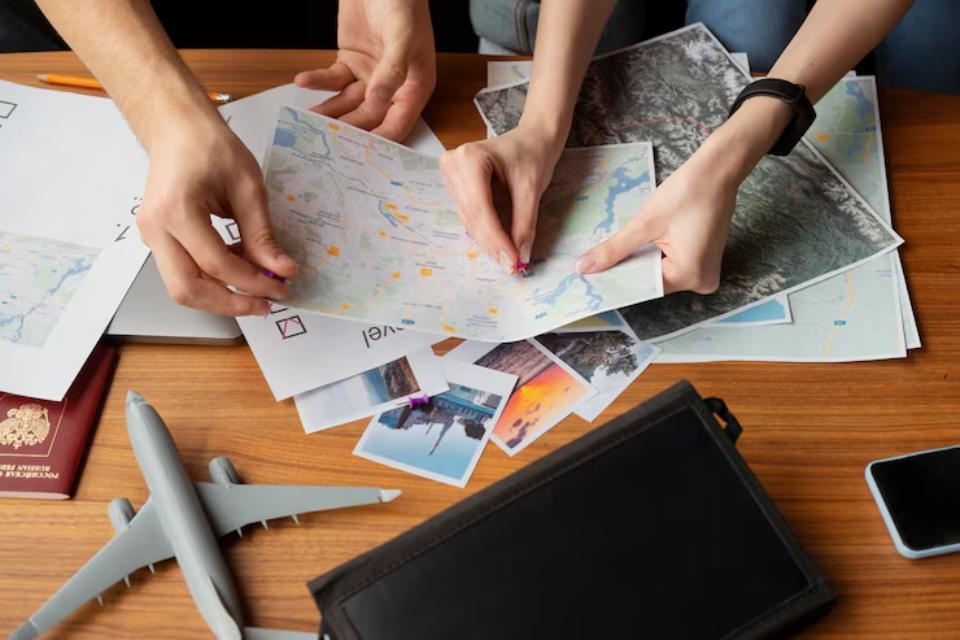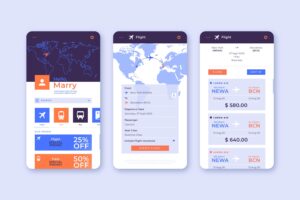The Travel Blog

The Future of Travel: AI-Powered Itinerary Optimisation
There was a time when travel planning meant flipping through bulky guidebooks, scribbling notes on sticky pads, and trying to decipher indecipherable maps. Those days? Long gone. The AI travel future is here, and it’s transforming not only how trips are planned, but how they unfold in real time.
At the heart of this revolution lies itinerary optimisation AI. Imagine having a travel assistant that never sleeps, never forgets, and always seems to know exactly what the perfect next step should be. Intrigued? You should be.
Remember Travel Planning Before AI?
Think back—planning a two-week trip used to involve dozens of open tabs: airline sites, hotel booking platforms, local tour operators, reviews, maps, weather forecasts. It felt like assembling a 1,000-piece puzzle with no picture on the box.
Even after the plan came together, unforeseen problems popped up. Canceled flights, overbooked hotels, rain ruining outdoor activities.
Enter smart travel planning, a concept that promises to eliminate chaos and give travellers back their most valuable asset: time.
What Is AI-Powered Itinerary Optimisation?
The technical definition may sound complex, but the idea is surprisingly straightforward. AI-powered itinerary optimisation uses algorithms to analyse a traveller’s preferences, available options, weather, opening hours, local events, travel times, and hundreds of other factors to design the most efficient, enjoyable, and personalised travel schedule possible.
Think of it as the ultimate personal assistant for travel. It’s not just about telling someone where to go—it’s about making sure every moment feels effortless and meaningful.
How AI Travel Planning Works in 2025

The experience in 2025 is surprisingly seamless. A user enters basic trip details: destination, dates, travel style, budget, and must-see spots. From there, AI does the rest.
Flights, transfers, hotels, restaurant reservations, museum passes—all organised and synced into one neat itinerary. The best part? AI updates automatically if something changes.
Missed the train? The itinerary shifts. Weather turns nasty? AI finds a cozy indoor activity. A strike shuts down a landmark? AI reroutes you to an equally stunning alternative.
Real-Life Examples of AI Itinerary Optimisation
This is not science fiction. Many travellers in 2025 already swear by this technology. Here’s what’s happening now:
1. Dynamic Scheduling

Travellers no longer stick rigidly to one plan. AI adapts in real time. If traffic blocks the way to a museum, the schedule shifts to visit a nearby gallery instead. Stressful delays vanish.
2. Local Event Integration
Heading to Kyoto and missing the annual cherry blossom festival would be a crime. AI-powered systems know about local events and suggest them proactively.
3. Personalised Restaurant Bookings
Craving authentic street food? Fancy a vegan tasting menu? AI recommends nearby dining options based on a user’s taste preferences, dietary needs, and even past reviews.
Key Benefits of AI Travel Future Tools
Time Savings
AI reduces planning time from hours to minutes. The algorithms handle the heavy lifting.
Increased Enjoyment
Fewer delays, more meaningful experiences, and the elimination of unexpected logistical nightmares mean travellers can actually enjoy their journey.
Hyper Personalisation
Whether it’s adventure travel, luxury escapes, foodie tours, or off-the-grid exploration, AI tailors every detail.
Sustainability
Eco-conscious travellers are automatically guided toward train journeys, green hotels, and local businesses.
The Role of AI in Preventing Travel Nightmares
An overlooked but game-changing feature is how smart travel planning prevents headaches:
- Flight delayed? AI rebooks the next best option.
- Hotel closed unexpectedly? AI finds another nearby.
- Lost luggage? AI suggests local stores for essentials and files a claim.
All handled before the traveller even realises there’s an issue.
Can AI Replace Human Travel Agents?
The short answer? No. Not fully.
The human touch remains unmatched for once-in-a-lifetime, ultra-complex journeys. Luxury safaris, private yacht charters, and bespoke tours still require human travel designers.
But for 90% of personal trips—city breaks, beach holidays, road trips, cultural tours—the convenience of itinerary optimisation AI is impossible to beat.
For anyone seeking next-level personalised suggestions, don’t miss How to Create a Travel Itinerary Using AI Tools for the ultimate toolkit.
Will AI Make Travel Too Predictable?
This is a common concern. The fear? That AI-planned trips will become too structured, too safe, too… robotic.
The reality is quite different. AI isn’t here to dictate every minute. Instead, it removes logistical noise so travellers can focus on what matters: spontaneity, wonder, and joy.
Think of it like bumpers in bowling. AI keeps the experience rolling smoothly while leaving plenty of freedom to explore, detour, or simply relax.
The Rise of AI-Enhanced Group Travel
Planning group trips used to be a nightmare. Juggling multiple calendars, budgets, and preferences felt impossible. Smart travel planning solves this beautifully.
AI now manages:
- Group voting on restaurants or activities
- Budget splits
- Shared itineraries that update automatically
- Notifications for changes sent to everyone in the group simultaneously
The result? Fewer arguments, more fun.
Privacy and Ethics: Important Questions to Ask
AI is powerful, but data privacy remains a concern. Travellers should choose apps that offer:
- Transparent privacy policies
- Data encryption
- Full control over what is shared and stored
Users should remain informed and in control at all times.
What Comes Next? The Future of AI Travel
The next five years promise mind-blowing enhancements to AI travel future experiences:
1. Augmented Reality Guides
Imagine walking through Rome and receiving historical facts, restaurant tips, and crowd alerts through smart glasses in real time.
2. Predictive Travel
AI will predict and solve problems before they happen. Sudden thunderstorm? AI suggests moving your river cruise to the following day automatically.
3. Multi-Modal Travel Planning
Seamlessly combining planes, trains, ride shares, bicycles, and ferries into a single coordinated schedule.
4. AI Concierge Services
AI agents capable of booking spa treatments, theatre tickets, and guided tours with a simple voice command.
Will AI-Powered Travel Eliminate Serendipity?
Absolutely not. Technology aims to reduce stress, not wonder. AI eliminates frustrations—long lines, booking errors, missed connections—so travellers can lean fully into the magic of discovery.
The sunset still stuns. The perfect hidden café still exists around the corner. AI simply nudges travellers in the right direction, faster.
The Verdict: Embrace the Best of Both Worlds
The evolution of itinerary optimisation AI reflects an exciting truth: travellers no longer have to choose between spontaneity and structure. They can have both.
AI tools offer the security of a plan while preserving the freedom to break away at any moment.
For those keen on comparing leading AI platforms, it’s worth exploring How AI is Personalising Travel Experiences in 2025 to see how fast this field is moving.
The Journey Is Still Yours

At the end of the day, technology enhances travel; it doesn’t replace the essence of it. The AI travel future is here to take away the guesswork and the glitches, not the goosebumps of standing atop a mountain at sunrise.
With smart travel planning, travellers gain more time to explore, more flexibility to roam, and more joy from the experience itself. That’s the future everyone deserves.
The best trips in 2025 are no longer about planning for perfection but about being free to enjoy the unexpected.
And that’s exactly where AI thrives.









